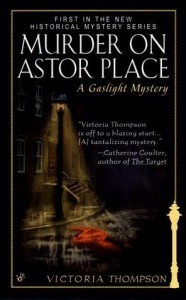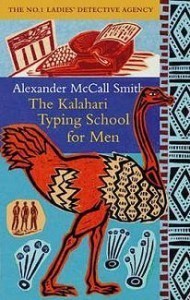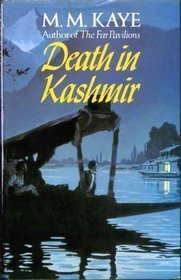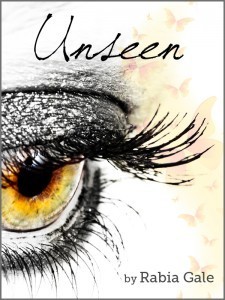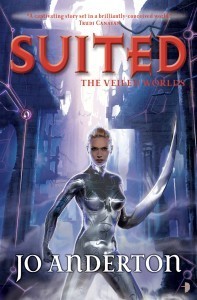Rabia Gale's Blog, page 22
July 18, 2012
out of shape: the character of a city
This is an older post about Blackburn, the setting of my short story Out of Shape, now part of my collection UNSEEN.
I love cities with character, and I love reading books set in them. Regency romances set in London. Science fiction in bizarre domed cities on other planets. Underground cities. Walled cities. Cities held in the arms of gigantic trees. Cities of spidersilk and magical glass. Ancient ruined cities. It’s my urban upbringing, I suppose, continuing to exert a fascinating pull.
Here’s some freewriting I did for Blackburn, the city which is the setting of Out of Shape. I wanted a handle on the city, turning it into a bit player, and solidifying it in my mind as the setting for future stories:
The sun never shone in Blackburn. The tall dark buildings marched shoulder to shoulder, closing ranks against the light. The sky was never seen in Blackburn, either, for the black smog hung low and thick like oily clouds. Occasionally, from the industrial district would come the belch and roar and hiss of fire shooting up tall chimneys; fire that fountained into sparks and quickly died amidst the gloom, and a movement of air would bring the sooty taste of smoke to the lips of the few pedestrians hurrying through the streets, eager to be inside.
The streets of Blackburn belonged to the machines. Trolleys trundled by on tracks; cars swung from cables overhead. Where they came from, where they went, no one knew. Sometimes empty, sometimes full of mysterious boxes and bundles, other times groaning with the weight of rusty iron and snapped cable, they came from the sullen gloom of the outerlands of Blackburn and disappeared into that same eternal night. For most, the machines were a backdrop to life in Blackburn, the clatter of wheels and whine of gears lullabies to Blackburn babies. There were people whose job it was to work with the machinery; soot-smeared cable boys as agile as monkeys; muscled trolley lads and raucous bridge workers. In the depths of Blackburn, down through many levels were more machines, bigger machines that demanded fuel and belched fire and there were operators down there, moving like shadows amidst the fiery furnaces – but polite people did not talk of them.
There were many ways of living in Blackburn, but for the majority, most of the living happened indoors; in apartments as close and hot as ovens, in smoky bars and noisy pubs, each with their doors and shutters closed tight against the bitter-tasting air. Blackburn was a city of darkness on the outside, but every time a door opened, it revealed a glowing orange interior, bright and jewel-like, quickly hidden again. The pedestrians who had been so wary upon the streets, muffled in scarves and coats, heads down and eyes sliding sideways, shed their outer clothing in layers, unfolded their bodies and became merry, laughing raucously. Sometimes a snatch of their laughter, the muffled groans of organ-grinders, the pounding of nailed boots upon bare boards in a jig, would drift out into the silent streets where the machines and their human workers went about their tasks.
Which cities, real or imaginary, your own or someone else’s, are you fascinated by?
Inspired by cities? Here are some ways to express it.
Check out these panoramic views of cities and more!
[image error]


July 16, 2012
5 favorite mystery series
Sometimes I get a hankering to read outside the SF&F sandbox. A couple of weeks ago I picked up Victoria Thompson’s A Murder on Astor Place and go into a mystery kick (I get that way sometimes).
I like mysteries that have something else besides the whodunnit–a historical or exotic setting, for instance, or a touch of romance, or a great character arc. Here, in no particular order, are mystery series I’ve enjoyed.
1. The Gaslight Mysteries by Victoria Thompson
The jury’s still out on this one. I like the pairing of tough, lower-class Irish police detective Malloy and upper-class-rebel-turned-midwife Sarah. I love the setting of turn-of-the-century New York, though the tone often feels too contemporary to me. So far, I’ve guessed whodunnit and why in books 1 & 2, so I wish the mysteries were more challening. However, I’m intrigued enough to read book 3.
2. The William Monk series by Anne Perry
The first book, The Face of a Stranger, uses the amnesiac device really well. William Monk’s identity crisis is not so much about who is he, but what he is. A police detective who suffers an accident in the middle of an investigation, Monk must figure out what kind of man he was before he lost his memory and what kind of man he will be after. Many of these mysteries also expose social ills in Victorian England.
3. The No. 1 Ladies’ Detective Agency series by Alexander McCall Smith
I love these! I love the Botswana setting, the slower-paced culture, the wisdom and gentleness of Mma Ramotswe. McCall Smith does an awesome job of immersing the reader in the world of his books. Highly recommended.
4.The … In Death series by J. D. Robb
Ah, my guilty pleasure series. I’ve gotten my sister addicted to these as well. I picked this up mid-series, when Roarke and Eve were already married, which might be why I’ve always found the romance part meh. However, I love the futuristic setting and the truly creepy mysteries that I’ve stayed up too late to finish far too often.
5. The Death in… series by M. M. Kaye
These are standalone mysteries, featuring different characters in a variety of locales (Berlin, Zanzibar, Cyprus, etc.). They have a strong romantic element. Kaye does atmosphere really well and has a knack for bringing her settings to life. My favorites are Death in Kashmir (snow and skiing, lakes and houseboats… and murder) and Death in Zanzibar (for that hilarious first part when the slightly inebriated male lead talks the naive protagonist into a crazy scheme).
Do you read mysteries? Which series are your favorites? Let me know in the comments!
[image error]


July 13, 2012
a writer’s manifesto
July 10, 2012
suited giveaway winner
And the winner of a signed copy of Suited by Jo Anderton is:
Kris!
Congratulations, Kris! Please email Jo at joanne (at) joanneanderton (dot) com to claim your prize. 
[image error]


July 9, 2012
second sight: autobiography in fiction
I hide in my stories.
I wear my characters like a disguise, blend into my made-up fantasy worlds, and weave incidents from my own life into extravagant plots. There are a few threads of reality in the tapestry of lies that is my fiction, but the casual reader would be hard-pressed to pick to those out.
And I like it that way. Sending my writing out into the world is hard enough. Putting out anything that delves deeply and openly into my own life and experiences feels like stripping down to to my skivvies and dancing on my car, yelling, “Hey, look at me!”
If you know me in real life, you’d know that I’d rather expire than do that.
Second Sight, though, is the fictional equivalent of dancing on my car in a state of undress.
When you read it, you can tell that I’ve obviously mined my own childhood for the story. I never saw fairies in my yard in Karachi, but they might have flitted among the rose and jasmine bushes. I glimpsed no spooky beings in our mango trees, though it was easy to believe they dwelt there in the dark of the night. I didn’t live next-door to royalty-in-hiding, but I did live next door to the Unpainted House.
Even the supernatural creatures populating Second Sight have their roots in my childhood imagination. I invented Kaloo Baba (the Dark Man) as a bugaboo for my younger brother and cousins (and scared us all silly in the process). The Skeleton Man jumped out at me one evening when I was out walking–one of those peripherally-seen shapes that you think is something scary ready to pounce on you, but turns out to be rather commonplace. (You jump and possibly give a little screech, but then you realize it was just your imagination and you look around, embarrassed, and hope that no one saw you.)
And then there’s Daria, wavering on the cusp of young womanhood, caught between being a child and a teenager. I get Daria, because she is so like my younger self. I get her struggle between wanting to be her own person and wanting to belong. I get her longing to be known and accepted for her whole self, strange gift and all. I understand her awkwardness and her uncertainty, her mixture of strength and fragility. I am proud and sad when I see how confident she is in her gift, but not about her gift.
Of all my fiction, Second Sight is the most autobiographical. And that’s not because of where it’s set, but who it’s about.
Here’s a beginning excerpt:
The fairies were fighting again.
Daria saw them out of the corner of her eye—wing-flutter, iridescent-flash—among the rose and jasmine bushes. Normally, she would’ve stopped to play peacemaker, but she was too excited and too nervous. Her thoughts skittered out of the garden, through the gate, and to one car out of the thousands in the mad rush of the city. She pictured it nosing through clogged streets, trundling over ruts and potholes, and fuming at stoplights as it brought Amir ever closer.
Daria ran a nervous hand down the front of her kameez, new and of a flattering dark green color, with blue embroidery at neck, hem and sleeves. Short sleeves, she thought, slightly scandalized and disbelieving. The wind caressed her bare, recently-waxed arms, raising goose bumps, and she resisted the urge to pull her dupatta over them.
“Well, well, what have we here? All dolled up and no mistake, Miss! Done something new with your hair, eh? Looks like it’s been tortured.”
Daria looked up at the Skeleton Man leaning over the wall. It wouldn’t do to ignore the Skeleton Man; he could carry a grudge longer than most people could remember what they had to be angry about.
“Mummy put it in a French braid.” She reached back and ran her fingers over it. Then, anxiously, “Do you really think it looks tortured?” A small part of her shook its head at her desperation. To be asking fashion advice from the Skeleton Man!
The Skeleton Man creaked as he peered down from the ten-foot-high boundary wall. “I suppose it’s all right.” His rusty voice softened. “In my day, the maidens wore their hair long and flowing down to their ankles, and the hem of their skirts filled entire rooms. Like flowers come alive they were, rustling over the grass as they strolled in the evening cool.” He looked doubtfully at her outfit. “But then, you’re too young to be collecting lovers.”
Embarrassment flooded Daria. “I’m not trying to impress anyone!” Her voice was higher than she’d intended. The gardener, coming around from the backyard, gave her an odd look, which she returned with a haughty tilt of her chin. The Skeleton Man cackled.
“Oh, very good! Just the look my Raheela would have given. That’ll teach the servants to speculate if their betters are mad.
Daria waited until the gardener had disappeared into the servants’ quarters before speaking. “They just don’t bother to see.”
“Haven’t you ever wondered if you really are mad?” pursued the Skeleton Man, slyly.
“No, just weird.” That’s what her former best friend had said. Then she’d told everyone else in their class about Daria’s stories and now they thought she was weird, too. She was glad that it was summer.
“Ow!” A tennis ball slammed against her left shin. Daria peered at the grimy circle imprinted upon her shalvar.
“It’s His Highness,” hissed the Skeleton Man.
The next-door boy swung over the boundary wall, climbed down the neem tree and came over to her with a careless, jaunty stride. Daria tensed. If the gardener should see! He’d be chased away with a rake, prince or not.
The prince sauntered past Daria, bent elegantly, and plucked the ball from where it had come to rest in a flowerbed. His brown, slender-fingered hand was covered with small cuts, old and new, and dirt lay under his fingernails. His clothes were faded with many washings and none too clean.
But he bent gold eyes on her, thick-lashed and clear, light and startling in his bronzed face. He looked her up and down, flashed her a white smile, and turned.
“Oi!” The gardener galloped out of the servants’ quarters and stopped, panting, next to Daria. “Young Miss, did you see the boy from next door?”
Daria sneaked a look to her left. As expected, the prince had vanished, swift and silent as a shadow. She thought she glimpsed the gold lining of his tattered tunic against the bark of a tree, but he was like water, fluid and slippery and hard to catch—or hold. He’d be gone over the rooftops.
“I didn’t see anyone.” Behind her, the Skeleton Man murmured, “Liar!”
“Those ruffians next door! Always trampling my plants, running around on my grass. They’re all heathens, turning on their infidel music late at night, singing and dancing from isha until fajr.”
Daria did not say that princes and the sons of princes were beyond the customs of common people. She looked at the Unpainted House where the prince lived. It was of drab and grey concrete, and the one big window upstairs was a gaping hole. But beyond the house lay the faint glimmering of minarets and domes, the lazy silken drift of flags of red and purple and gold, the blue haze of incense spiraling towards the sky… How to explain to the gardener that the prince straddled two worlds?
“There was no one here,” she repeated. Then, grandly, “Go back to your duties.” Grumbling about rapscallion boys, the gardener went.
A rustle in the tree top made her look up. The prince laid his lean hand briefly against his breast, above his heart. Daria sketched a slight curtsey, then half-waved, half-shooed. The prince melted back into bark and leaf and shadow.
You can find the rest of Second Sight in my short story collection, UNSEEN, now available on Amazon, Barnes & Noble and Smashwords.
How about you? How do you hide–or not hide–in your fiction?
[image error]


July 8, 2012
unseen at smashwords
My husband’s been busy this weekend. Look: Unseen is up on Smashwords!
The sharp-eyed among you might have noticed that while Unseen is available on Amazon and B&N for $0.99, its price on Smashwords is $1.99. I did this because 99-cent price is my intro price, as a thank you to all my early buyers, and it goes away in a month’s time. However, Smashwords is really slow about pushing price changes through to its various sales channels (something I’m having issues with regarding Shattered), so instead of listing Unseen at 99 cents, I’m offering a 50%-off coupon instead.
The code is EP45Q and it expires in a month (8/8/12).
Thank you to all who have bought Unseen. I appreciate it greatly!
[image error]


July 6, 2012
now available: unseen
A Pakistani girl with a gift for seeing what no one else can incurs the wrath of a supernatural being. A pudgy accountant who sees far more than he wants to is chased by mysterious figures through the gloom of an industrial city. Both encounter what lies beyond the edges of the mundane world.
Unseen is a collection of two previously published short stories by Rabia Gale.
Now available on Amazon US | Amazon UK | Barnes & Noble
[image error]


July 5, 2012
get off the couch: jo anderton on writing middle books
You’re in for a treat today! Jo Anderton is here to talk about how she dealt with the sagging middle problem while writing Suited, book 2 of her Veiled Worlds trilogy. She’s also giving away a signed copy of Suited. Leave a comment to enter the drawing. Contest open till Monday, July 9th, 8pm EST.
Welcome, Jo!
The fact that Suited was a book two was very much a part of my thinking while I was writing it.
The idea of writing a book two terrified me. Book twos have all this extra pressure on them. There’s the fear of ‘middle book syndrome’, where the book feels like little more than filler between the real action of the beginning and the end. There’s living up to any expectations I might have set up in the first book — from the readers who enjoyed it and want to see more, to the readers who have decided to reserve judgement. From a world building and story telling perspective, I knew this book had an important role to fill — there were big events that needed to happen, a couple of twist, some revelations. What if I couldn’t do them justice? All of this weighed upon me. If I wasn’t careful I could end up with something boring, pointless, that made no one happy, not even me.
Cue the hyperventilating.
In order to stop the hyperventilating panic OMG I can’t do this, I did what I always do — I made a list. This wasn’t a list on paper or whiteboard, colour-coded and bullet-pointed, not like my usual lists. (Yes, I do this. Don’t judge me!) This list existed in my head and in my gut, and it was at once simple, and complicated. It went like this:
Don’t get comfortable
(Yeah yeah, I know, bullet point. So sue me!)
You might have noticed that a lot of the fears I listed above involve stagnation, and I guess they can be summed up that way rather neatly — I was afraid the book would stagnate. Beginnings are exciting because they are fresh. New worlds to explore, new characters to meet, new challenges to overcome and bad guys to fight. By the time we get to the sequel, we already know these things. We know who the main characters are, we know how the world works, we know the major threats and who’s doing the threatening. So ‘don’t get comfortable’ was my way of injecting some of that excitement back.
Tanyana’s settled into her debris collecting team — let’s take that away from her, shall we? She’s starting to get a handle on her new life — let’s add a massive complication! Maybe the world doesn’t work the way you think it does, and maybe the Puppet Men are even weirder than they seem. And how about we put some major characters in some very real danger, and see who comes out the other end?
‘Don’t get comfortable’ applies to Tanyana and everyone else in her world, but it also applied to me. Any time I started to catch my breath as a writer, any time I caught myself thinking ‘oh well, this is nice’ I knew it was time to shake it up. Keep moving. Something doesn’t feel right, delete and try again. Good enough isn’t good enough. You think that scene’s finished? Think again. Let’s keep the waters flowing. No stagnation here.
Suited was my first book two, with all the pressures that brings with it, and this was how I handled it. With my simple, complicated list.
Don’t get comfortable
And, if all else fails, blow everything up.
The Veiled Worlds, Vol II
Tanyana has chosen to help the Keeper, to stand against the Puppet Men, who continue to force the Debris into unnatural creations.
And when even her own suit becomes aggressive against her, Tanyana must weigh some very personal issues against her determination to serve the greater good.
About Jo: Jo Anderton lives in Sydney with her husband and too many pets. By day she is a mild-mannered marketing coordinator for an Australian book distributor. By night, weekends and lunchtimes she writes science fiction, fantasy and horror. Her short fiction has most recently appeared in Light Touch Paper, Stand Clear and Epilogue. Her debut novel, Debris (Book One the Veiled Worlds Series) was published by Angry Robot Books in 2011. Book two Suited has just been released. Debris was a finalist for the 2011 Aurealis award for Best Fantasy Novel, and Jo won the 2012 Ditmar for Best New Talent. Visit her online at http://joanneanderton.com and on Twitter @joanneanderton
[image error]


July 2, 2012
post-outage notes
I had plans for the weekend. I was going to get Unseen out on Amazon and B&N. I was going to get in some writing time and work on another Elinor story. Our whole family would go to the pool and cool off in the 100-degree heat.
None of those things happened (except the heat).
Instead, on Friday a super derecho (yeah, I just learned that term, too) ripped through the Midwest and the mid-Atlantic region at such a furious pace that it took out power at my father-in-law’s house in Ohio in the afternoon, then did the same at our place in Virginia by 11 that evening. I’m glad that I didn’t know how intense this phenomenon was until after the fact, because I have this thing about high winds. At one point, I looked up at the skylight and saw trees whipping around, which made my stomac flip-flop in sympathy.
We were without power for three nights (and two and a half days). Half the traffic lights around were not working and many many businesses were closed. It took us a while to find a place to have breakfast at on Saturday morning.
It was not all bad, though. Even with the traffic lights not working, drivers were courteous and careful, leading me to revise my opinion of Virginia drivers. In our neighborhood, the people with power ran extension cords to homes with outages. We were the recipients of such generosity, and being able to run the refrigerator and fans made all the difference between an unlivable situation and an adventure.
We played games like Twenty Questions (the animal version) and Name, Place, Animal, Thing. Sir I. built model dinosaurs that had once belonged to my husband. David made lots of progress on his cross-stitch. We read books and told stories at night when it got too dark to read. I introduced the kids to Mad-libs (a sneaky way of getting grammar instruction into summer vacation). I looked at stars and the kids tried to catch fireflies.
I hardly missed the Internet (sorry, Twitter and Facebook and blog!). There were times I wished I had my ‘puter on so I could write, but I did some story thinking instead.
We were all ready for the power when it did come back this afternoon, but the break in our routine shook things up. I needed that Internet hiatus, even if it was a rather drastic way of getting one.
There are lots more people without power still–not to mention those affected by the wildfires in Colorado–who are still in my thoughts and prayers.
How about you? Anyone else affected? What are your favorite power-outage coping strategies?
[image error]


June 27, 2012
why I’m self-publishing, with caveats
I’ve rather avoided the obligatory “why I’m self-publishing” post. First of all, I’m not a publishing method zealot (I save my activism for causes like Free Chocolate for All Moms! and Ban Early Mornings!). I love that new technologies and changing business models are giving writers more options than ever before. We can try for an agent and a traditional deal with a big publisher. We can find a small press to partner with. Or we can self-publish. But there is no One True Way to publishing success. What works for one writer is going to be the kiss of death to another.
Secondly–and sadly–the recent changes in the Way Things Are Done have divided writers into camps. And woe betide any unfortunate who dares cross over. A self-publisher signs a deal with Ye Olde Established Publishing House? Sellout to greedy corporate interests. A traditionally-published writer puts up her backlist all on her own? Traitor. A never-published writer gets off the query-go-round and self-publishes? A hack who doesn’t have what it takes to be a real author.
No, thanks. I don’t need to join the Publishing Wars (but sign me up for the fight to eliminate any wake-up time before 8 am!). I just want to do what’s right for me, my career, and my books. For some projects that might mean self-publishing, for others it might mean going with a publisher–if they’ll have me (*grin*).
But whatever route I go, rest assured that I always always strive to have as good of a product as I can manage. I do not–and will not–throw words on the screen and then upload to e-tailers without revising, copyediting, proofreading, and getting feedback from my nitpicky beta readers. You will get my best work at the time, and I’m always looking to improve.
So, now that’s out of the way, why did I self-publish Shattered (with more projects along the way)? (Darn, there’s no avoiding that question.)
First, to show I could do it. My father owns his own business, so I suppose entrepreneurship is in my blood. I liked the idea of being a project manager for my collection. I liked being in charge of the entire process from story to saleable product. As a writer, I’d never had to worry about things like back cover blurbs, anthology titles, story order, and cover design. Now I know how much goes into putting out even a simple ebook and I picked up a few skills along the way (though I won’t be hanging out my shingle for e-book formatting and conversion services–ever). The experience of self-publishing was worth it.
Second, I had material that would not work for traditional publishing venues. Single-author anthologies are a notoriously hard sell unless you are a Big Name–not to mention that I didn’t have enough stories to fill a novel-length book, anyhow. But I did have three thematically-linked stories that were perfect for a self-publishing project. So I did it.
Aside: All the other stories in my self-publishing queue are also hard to place in traditional venues because, lengthwise, they fall in that vast space between short story and novel.
And, lastly, self-publishing has motivated me to keep writing. I write to reach readers. If I hadn’t self-published Shattered, those stories would’ve been sitting on my hard drive, reaching no one. Instead, now my work is out there, getting favorable reviews from people who are not my family and close friends. I have evidence that I’m not wasting my time here, toiling over the keyboard. It was a much-needed boost that came at the right time.
There’s another reason why I self-published, but that deserves its own post in the future. Right now, self-publishing works for me and I’m giving it a good go.
Do you self-publish? Why or why not? Let me know in the comments.
[image error]



